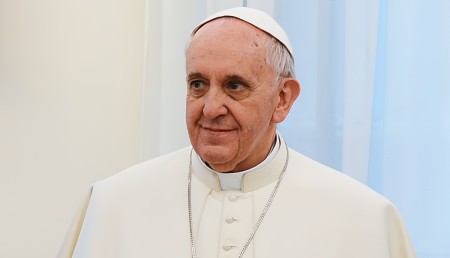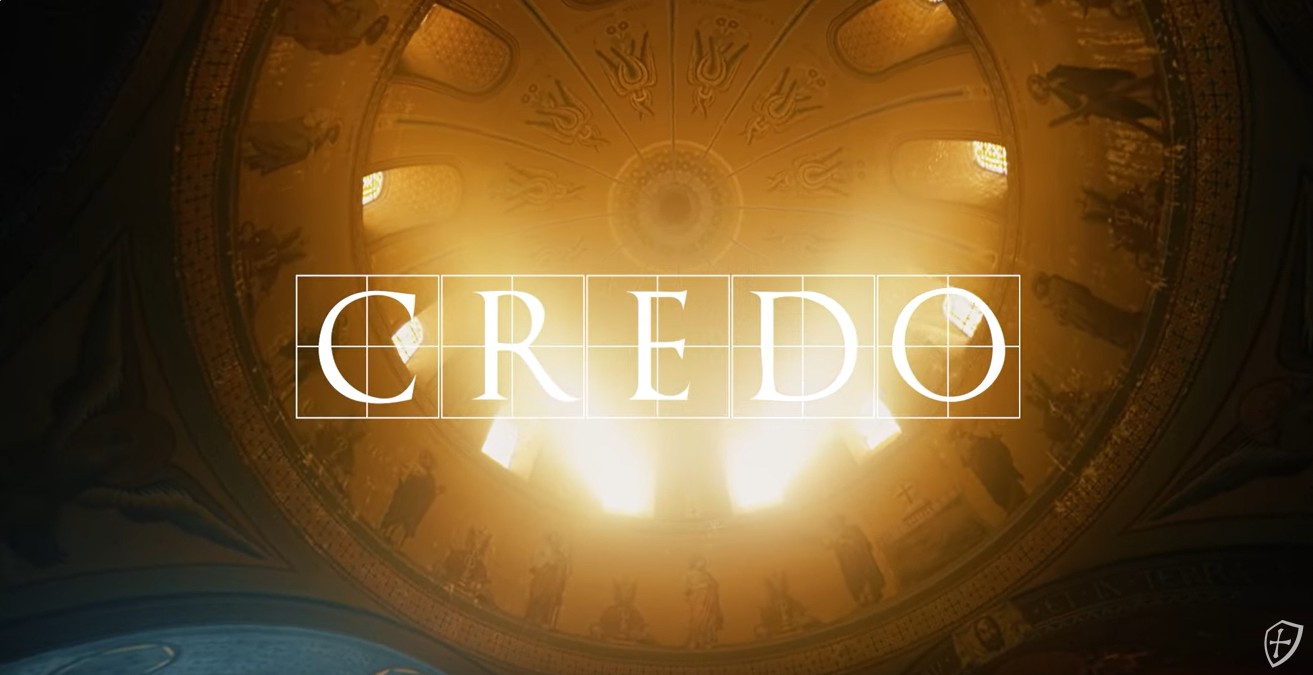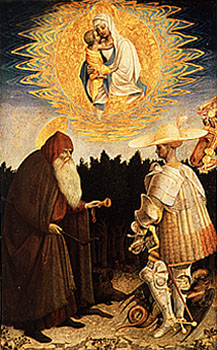We ask you, urgently: don’t scroll past this
Dear readers, Catholic Online was de-platformed by Shopify for our pro-life beliefs. They shut down our Catholic Online, Catholic Online School, Prayer Candles, and Catholic Online Learning Resources—essential faith tools serving over 1.4 million students and millions of families worldwide. Our founders, now in their 70's, just gave their entire life savings to protect this mission. But fewer than 2% of readers donate. If everyone gave just $5, the cost of a coffee, we could rebuild stronger and keep Catholic education free for all. Stand with us in faith. Thank you.Help Now >
Favorite Passage at Synod: Jesus on the Road to Emmaus
FREE Catholic Classes
The Emmaus story and the Synod on the Word of God address the need for real faith in Jesus the living Word.
Highlights
Zenit News Agency (www.zenit.org)
10/15/2008 (1 decade ago)
Published in Europe
ROME (Zenit) - At our daily press briefings, one of the frequently asked questions by the journalists covering the synod is: "What is the most frequently quoted Scripture passage(s) appearing in the talks of the synodal fathers?"
I would answer without a doubt the Gospel story of the disciples on the road to Emmaus (Luke 24:13:35). It has been cited by cardinals, bishops, experts and special guests in many of the talks coming from every corner of the earth. The story is a great model or paradigm for catechesis, teaching, Bible study and above all for Christian living. I am delighted to hear the story referred to so often, especially since it was the topic of my first thesis at the Pontifical Biblical Institute in Rome back in 1990.
The Emmaus story is one of the focal points in the construction of Luke's Gospel, revealing the tension between the events at the empty tomb and the disciples in reaction to them. These facts are clear from reading the story: Cleopas and his companion are going away from the locality where the decisive events have happened toward a little village of no significance. They did not believe the message of the Resurrection, due to the scandal of the cross. Puzzled and discouraged, they are unable to see any liberation in the death, the empty tomb, or the message about the appearances of Jesus to the others. In their eyes, either the mission of Jesus had entirely failed, or else they, themselves, had been badly deceived in their expectations about Jesus.
As the two downtrodden disciples journeyed with Jesus on that Emmaus road, their hearts began to burn as they came to understand with their minds the truth about the suffering Messiah. At the meal in Emmaus, they experienced the power of the Resurrection in their hearts. The solution to the problem of these two disciples was not a perfectly logical answer.
Through the powerful message of this Resurrection appearance story, Luke explains to his readers and to his community that the Resurrection is indeed a logical event to the one who understands the message of the Scriptures. However, Cleopas and his companion are "foolish and slow of heart to believe all that the prophets have said!" (verse 25) Understanding the Resurrection implies a two-fold process of knowing the message of the Scriptures and experiencing the one about whom they all speak: Jesus the Lord, through the breaking and sharing of bread with the community of believers. More than a matter of theory and intellect, the Emmaus story tells us that the Resurrection must first and foremost be experienced in the heart. Through the Emmaus story, Luke has transformed a traditional recognition story into a blueprint for the Christian mission.
Emmaus and the synod: a journey from the head to the heart
The journey motif of the Emmaus story (and one can say of this synod on the Word of God) is not only a matter of the distance between Jerusalem and Emmaus, but also of the painful and gradual journey of words that must descend from the head to the heart; of a coming to faith, of a return to a proper relationship with the stranger who is none other than Jesus the Lord.
For Cleopas and his companion on that first Easter, their journey was a gradual, painstaking process requiring a careful remembering and rearticulation of the events of salvation history found in the Scriptures, along with an experience of the Risen Lord. It is no less the same for Christians of the 21st century who continue to interpret the Scriptures in this day and age, and move from faith-filled insights to a proclamation and lived experience of the One who is truly risen from the dead. Is it any wonder that such a Gospel story has been quoted so often during this synod on the Word of God in the life and mission of the Church?
* * *
Basilian Father Thomas Rosica is the Vatican's English-language press attache for the 2008 world Synod of Bishops. A Scripture scholar and university lecturer, he is the chief executive officer of the Salt and Light Catholic Media Foundation and Television Network in Canada, and a member of the General Council of the Congregation of St. Basil.
Join the Movement
When you sign up below, you don't just join an email list - you're joining an entire movement for Free world class Catholic education.

-

-
Mysteries of the Rosary
-
St. Faustina Kowalska
-
Litany of the Blessed Virgin Mary
-
Saint of the Day for Wednesday, Oct 4th, 2023
-
Popular Saints
-
St. Francis of Assisi
-
Bible
-
Female / Women Saints
-
7 Morning Prayers you need to get your day started with God
-
Litany of the Blessed Virgin Mary
Pope Francis Suffers Fall: A Look at Papal Health and Succession
-

The Erosion of Civility in Congressional Hearings: A Call for Professional Decorum
-

Bishop Strickland and Others Defend Apostolic Tradition in New Documentary on the Church's Enduring ...
-
At Least 25 Dead as Wildfires Continue to Rage Across Los Angeles, Arson Investigations Underway
-
Australian Woman Charged with Torture After Exploiting Child for Donations
Daily Catholic
 Daily Readings for Friday, January 17, 2025
Daily Readings for Friday, January 17, 2025 St. Anthony the Abbot: Saint of the Day for Friday, January 17, 2025
St. Anthony the Abbot: Saint of the Day for Friday, January 17, 2025 Prayer for a Blessing on the New Year: Prayer of the Day for Tuesday, December 31, 2024
Prayer for a Blessing on the New Year: Prayer of the Day for Tuesday, December 31, 2024- Daily Readings for Thursday, January 16, 2025
- St. Fursey: Saint of the Day for Thursday, January 16, 2025
- St. Theresa of the Child Jesus: Prayer of the Day for Monday, December 30, 2024
![]()
Copyright 2024 Catholic Online. All materials contained on this site, whether written, audible or visual are the exclusive property of Catholic Online and are protected under U.S. and International copyright laws, © Copyright 2024 Catholic Online. Any unauthorized use, without prior written consent of Catholic Online is strictly forbidden and prohibited.
Catholic Online is a Project of Your Catholic Voice Foundation, a Not-for-Profit Corporation. Your Catholic Voice Foundation has been granted a recognition of tax exemption under Section 501(c)(3) of the Internal Revenue Code. Federal Tax Identification Number: 81-0596847. Your gift is tax-deductible as allowed by law.






 Daily Readings for Friday, January 17, 2025
Daily Readings for Friday, January 17, 2025 St. Anthony the Abbot: Saint of the Day for Friday, January 17, 2025
St. Anthony the Abbot: Saint of the Day for Friday, January 17, 2025 Prayer for a Blessing on the New Year: Prayer of the Day for Tuesday, December 31, 2024
Prayer for a Blessing on the New Year: Prayer of the Day for Tuesday, December 31, 2024


